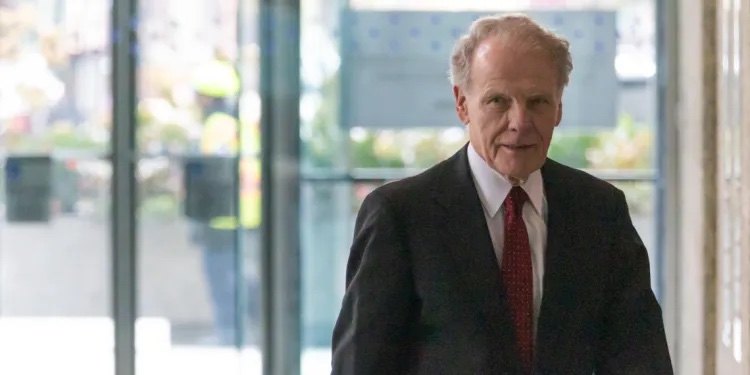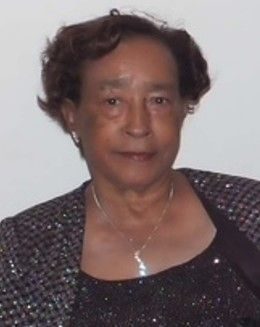‘They were being paid as a favor to Mike Madigan’: Feds’ star witness takes stand

CHICAGO – As chief lobbyist for electric utility Commonwealth Edison, Fidel Marquez had an expansive role that put him in charge of “approximately 130, 135 people.” But in June 2013, more than a year into that job, Marquez received an email about someone he was ostensibly supposed to be overseeing – but had never heard of.
Marquez’s direct boss, ComEd CEO Anne Pramaggiore, had forwarded an email from the utility’s top contract lobbyist, Mike McClain, requesting someone named Ed Moody be moved off of his longstanding lobbying contract and onto “someone else’s.”
Marquez then forwarded that email back to McClain, asking, “Can you clue me in?”
In a subsequent conversation, McClain informed Marquez that Moody was “someone that was important to Mike Madigan,” Illinois’ longtime House speaker, and that he’d been paying Moody through his ComEd lobbying contract for a while.
Moody was, in fact, one of Madigan’s top precinct captains in his 13th Ward Democratic Organization on the Southwest Side of Chicago, Madigan’s political power base. And his yearslong subcontracting arrangement with ComEd was one of several that were central to federal prosecutors’ theory that the utility bribed the powerful House speaker with jobs and contracts for his political allies in exchange for favorable legislation in Springfield.
A jury already convicted McClain, Pramaggiore and two other former ComEd lobbyists last year for their roles in bribing Madigan, with Marquez the star cooperating witness against his former colleagues in the “ComEd Four” trial.
Read more: ‘If it ain’t broke, don’t fix it’: Secretly recorded videos show ComEd lobbyists discussing alleged bribery scheme | ‘You had a choice to make’: Defense paints cooperating witness in ComEd trial as opportunistic
And on Tuesday, Marquez returned to the witness stand in the trial of Madigan and McClain, who are facing bribery and racketeering charges in a case that extends beyond ComEd to a similar alleged scheme involving AT&T and steering business to Madigan’s private real estate law firm.
During the course of Marquez’s testimony, which could last the rest of the week, the jury will see several videos he recorded of meetings with his colleagues while wearing an FBI wire in the winter and spring of 2019. He quickly agreed to cooperate and have his cell phone wiretapped when agents approached him early one morning in January of that year. The jury will also hear many calls resulting from that wiretap.
But it was Marquez’s June 2013 call with McClain – and his actions afterward – that Assistant U.S. Attorney Amarjeet Bhachu focused on Tuesday.
McClain’s email about Moody suggested he could be moved to the contract of fellow contract lobbyist Jay Doherty, who for years had lobbied Chicago and Cook County officials on ComEd’s behalf. In the call with Marquez, McClain explained that Doherty had similarly been paying Madigan political allies under his lobbying contract for a while – something that was also news to Marquez.
“At this time you were senior vice president for governmental and external affairs – is it your job to know who’s being paid to lobby?” Bhachu asked.
“Yes,” Marquez answered.
“Did you know before this point in time they were being paid from the JDDA contract?” Bhachu asked, using an acronym for Doherty’s firm, Jay D. Doherty and Associates.
“No,” Marquez said.
The two other Doherty subcontractors Marquez hadn’t been aware of included former 13th Ward Ald. Frank Olivo and another of Madigan’s loyal precinct captains, Ray Nice.
Marquez on Tuesday said McClain told him that Nice was one of the “top three precinct captains” in the 13th Ward, and that Olivo – whom he had known several years earlier when Marquez lobbied the Chicago City Council – was “a political ally of Mike Madigan.”
“Did he (McClain) tell you what work, if any, he did for the company?” Bhachu asked Marquez, who said no.
After the call with McClain, Marquez said he informed Pramaggiore that he was filled in on the matter and that he’d move Moody from McClain’s contract to Doherty’s. But when he asked if he should then reduce McClain’s monthly rate to reflect that he was no longer carrying Moody, Marquez said Pramaggiore told him to leave it “untouched.”
“Did she at any time express confusion about request that had been made to her?” Bhachu asked.
“No,” Marquez said.
Marquez then called Doherty about moving Moody to his contract, and on Tuesday he affirmed to Bhachu that he didn’t give “any direction” to Doherty about work Moody – or Olivo or Nice – should be doing on ComEd’s behalf.
“I didn’t expect them to do any work for ComEd as they were being paid as a favor to Mike Madigan,” Marquez said when Bhachu asked him why.
Marquez also claimed ComEd leaders, including himself, agreed to the contracts to appease Madigan “in order for him to be more positively disposed toward ComEd’s legislative agenda.”
Beginning in 2011, Olivo was paid $4,000 monthly while Nice was paid $5,000. When he got his own subcontracting arrangement in 2012, Moody received $4,500 a month.
Marquez said no when Bhachu asked if he had “any expectation” Olivo or Nice would “do any work” for ComEd in exchange for their annual stipends of $48,000 and $60,000, respectively, and affirmed that he never asked them to do any work for the utility.
“Was there ever any discussion about giving them work?” Bhachu asked.
“No,” he replied.
Between 2011 and 2019 – when including two other Madigan allies who would eventually be added to other contracts – the feds allege ComEd paid more than $1.3 million for the contractors who did “little to no work.”
Read more: Top Madigan foot soldier testifies he didn’t work for $4,500 monthly checks
Marquez acknowledged turning a blind eye to the no-work contractors as a prerequisite to improving ComEd’s historically beleaguered relationship with Madigan. But he also said he took steps to prevent a possible ethics concern in late 2016, when Moody was appointed to fill a vacancy on the Cook County Board of Commissioners. Moody was moved from Doherty’s contract to another lobbyist’s.
“There may be an occasion where Jay Doherty would have to lobby Ed Moody, who would’ve been paid under his contract,” Marquez said. “So that would’ve created a clear conflict.”
Earlier on Tuesday, the jury heard continued testimony from another of Madigan’s longtime precinct captains, who painted a picture of 30 years of door-to-door volunteer work he did on behalf of the speaker’s 13th Ward organization.
Joe Lullo, who resigned from his decades as a precinct captain in 2019 around the same time he retired from the Chicago Police Department, told the jury he was one of roughly 80 precinct captains at one point, all of whom were responsible for visiting a few hundred homes on a regular basis.
Lullo said he’d knock on doors and ask if residents needed any city services, including “tree removal, tree trimming, curb repair, sidewalk repair, potholes…rodent abatement,” and at times would just take care of problems himself. He’d make his rounds on weekends, days off work and on vacations.
And during election season, Lullo would visit those same homes to ask for residents’ votes for Madigan and other Democrats the speaker had endorsed, leaving them a palm card he called a “sample ballot” – a common political practice in Chicago and beyond.
Bhachu asked how Lullo convinced those residents to vote the way he wanted them to.
“My services throughout the year,” Lullo replied.
The longtime precinct captain also received help from Madigan over his decades working for the 13th Ward, including a recommendation that allowed him to transfer from working at the Cook County Jail to a better position within the Cook County Sheriff’s Office in the early 1990s.
A few years later when he’d become a Chicago Police officer, Madigan and Olivo both called Lullo to inform him that he was given a plum assignment on a special unit within CPD that included “flexible hours, holidays off, weekends off,” Lullo said.
Lullo also testified that he got to know other precinct captains in his 30 years; some of them would be invited to Springfield every other year for the Illinois House inauguration ceremony, sitting in the speaker’s box as one of Madigan’s guests.
Moody and his twin brother Fred were among those most valued precinct captains in the 13th Ward, Lullo confirmed, but also agreed with Madigan attorney Tom Breen’s assertion that they both were “braggarts.”
“Did you speak with them from time to time?” Breen asked.
“I tried not to,” Lullo said, eliciting laughs from the courtroom – including from Madigan.
Bhachu tried using Lullo’s dislike of the Moody brothers to undercut his previous testimony that he trusted Madigan’s political judgment enough that he didn’t feel the need to do his own research on candidates the speaker endorsed.
“Do you trust his judgment?” Bhachu asked after having just asked a series of questions about Madigan’s wisdom in making the Moodys precinct captains.
“I trust Mr. Madigan,” Lullo replied.
Capitol News Illinois is a nonprofit, nonpartisan news service that distributes state government coverage to hundreds of news outlets statewide. It is funded primarily by the Illinois Press Foundation and the Robert R. McCormick Foundation.
This article first appeared on Capitol News Illinois and is republished here under a Creative Commons license.
Miss Clipping Out Stories to Save for Later?
Click the Purchase Story button below to order a print of this story. We will print it for you on matte photo paper to keep forever.

